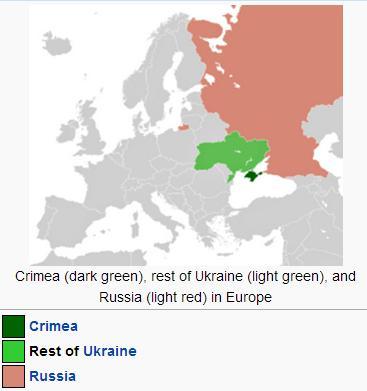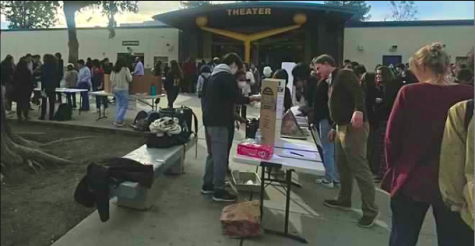Crimean Crisis Continues
Head-to-head discussion of actions taken in regard to the crisis.

In brief– It started when Crimea voted in a referendum to secede from Ukraine and join Russia. There was a landslide of support, with 95% of Crimeans voting to join Russia. The United Nations and United States of America declared the vote illegal, with the U.S. sanctioning Russian officials’ possessions, but not ones they were merely managing for Russia. The United States’ John Kerry vowed a $1,000,000,000 dollar loan to support Ukraine, and went to Crimea. Then an U.N. envoy was forced out of Crimea, according to the U.N.
On March 18, Putin signed a treaty that said Crimea and Sevastopol were part of Russia.
After Crimea joins Russia, Russian military units force Ukrainians to defect or leave the military installations in Crimea.
Nick Zandbergen:
“It is my opinion that the U.S. was wrong in punishing Crimea for its referendum. While the U.S. of A. called it illegal, evidence shows that it was held in accordance to international standards. Crimea should have it’s decisions respected, especially when they are reached through a democratic process. If one of Canada’s provinces voted to secede to the U.S. of A. it would be another international incident, depending on how it played out. But it wouldn’t last as long.”
Brandon Hill:
“While the Crimean Crisis is still ongoing, Crimea is now officially a part of Russia. Ukraine, United States, and the European Union have declared the response of this to be a “land-grab.” Crimea has been independent, but has still been a part of Ukraine. That has changed now. The referendum signed on March 18 of this year for Crimea to be in the Russian Federation had an astonishing rate of 97% of the votes that supported the change. This lead to Ukraine, United States, and European Union condemning the referendum as illegal and retaliated by putting sanctions on 21 officials in Crimea and Russia.
Russia responded back by sanctioning the U.S. and barring nine officials from entering their country, including Speaker of the House, John Boehner; Senate Democratic leader, Henry Reid; Senator John McCain; and three close advisers to President Obama.
The actions of Russia are not the actions many other countries would take unless the country is super aggressive. Russia’s decision on the Crimean Crisis goes so far as to send their military to Crimea and force Ukrainians out of their former territory. Choices like these damage relations with other countries. If this “land-grab” continues to happen anywhere, war will surely be imminent.”

The student named Brandon Hill went to four schools before coming to Lincoln. He is a senior at Lincoln high school and his birthday is February 27th....

Nick Zandbergen is the one who reads through the archives hunting for typos and throws an eerily accurate Frisbee.








